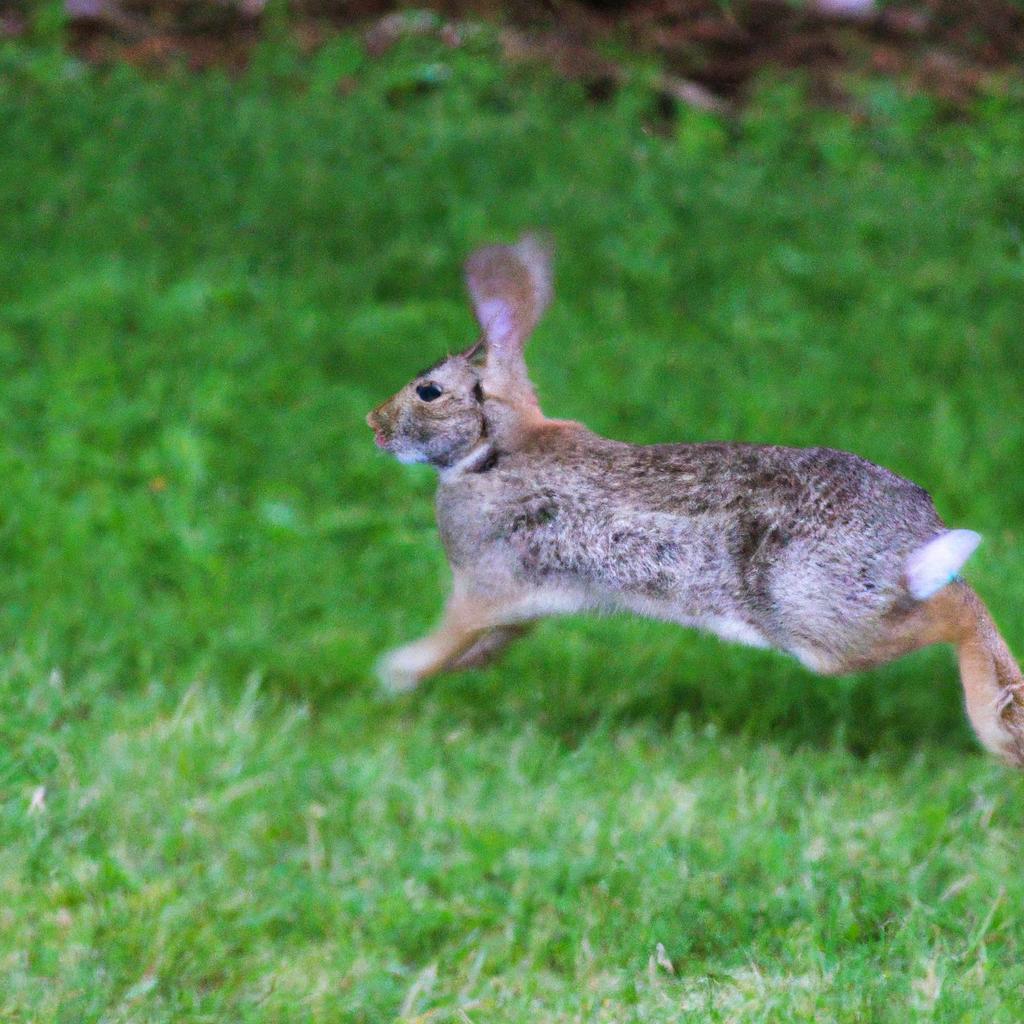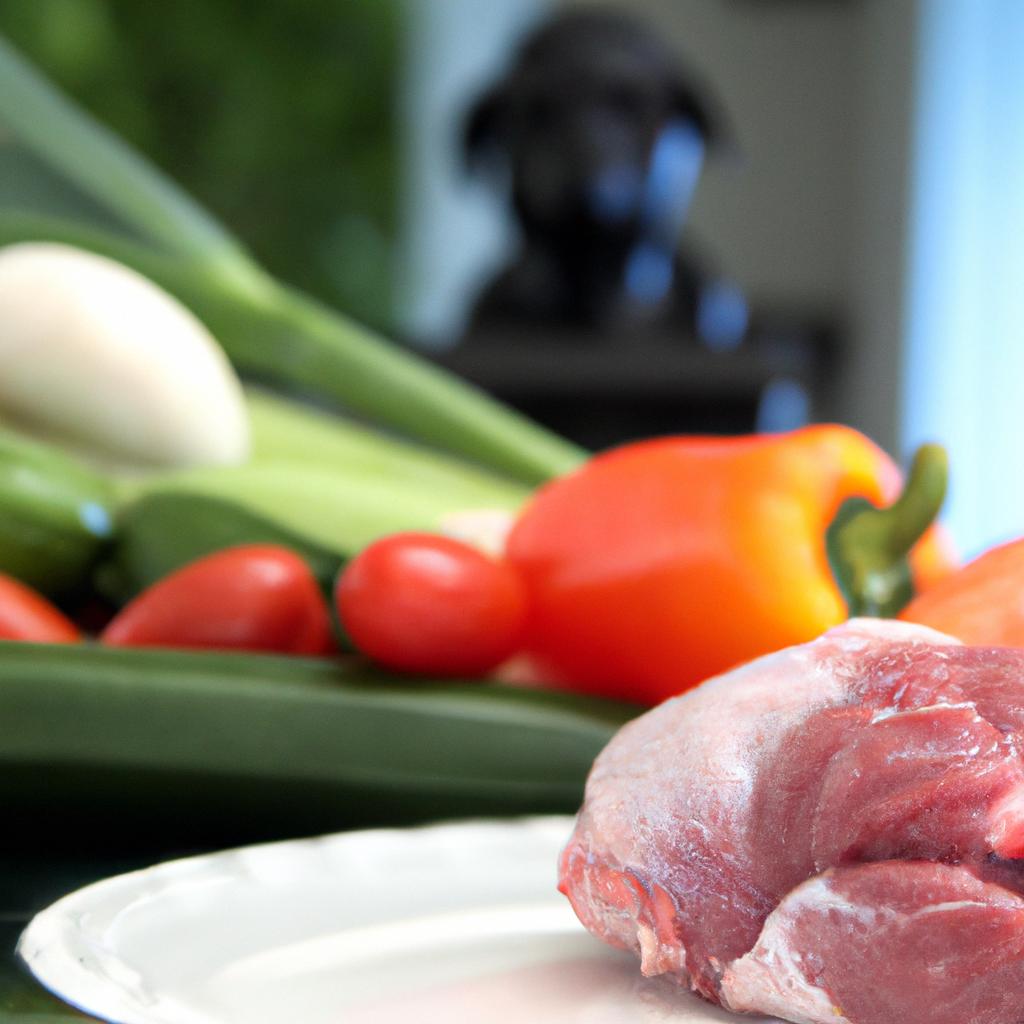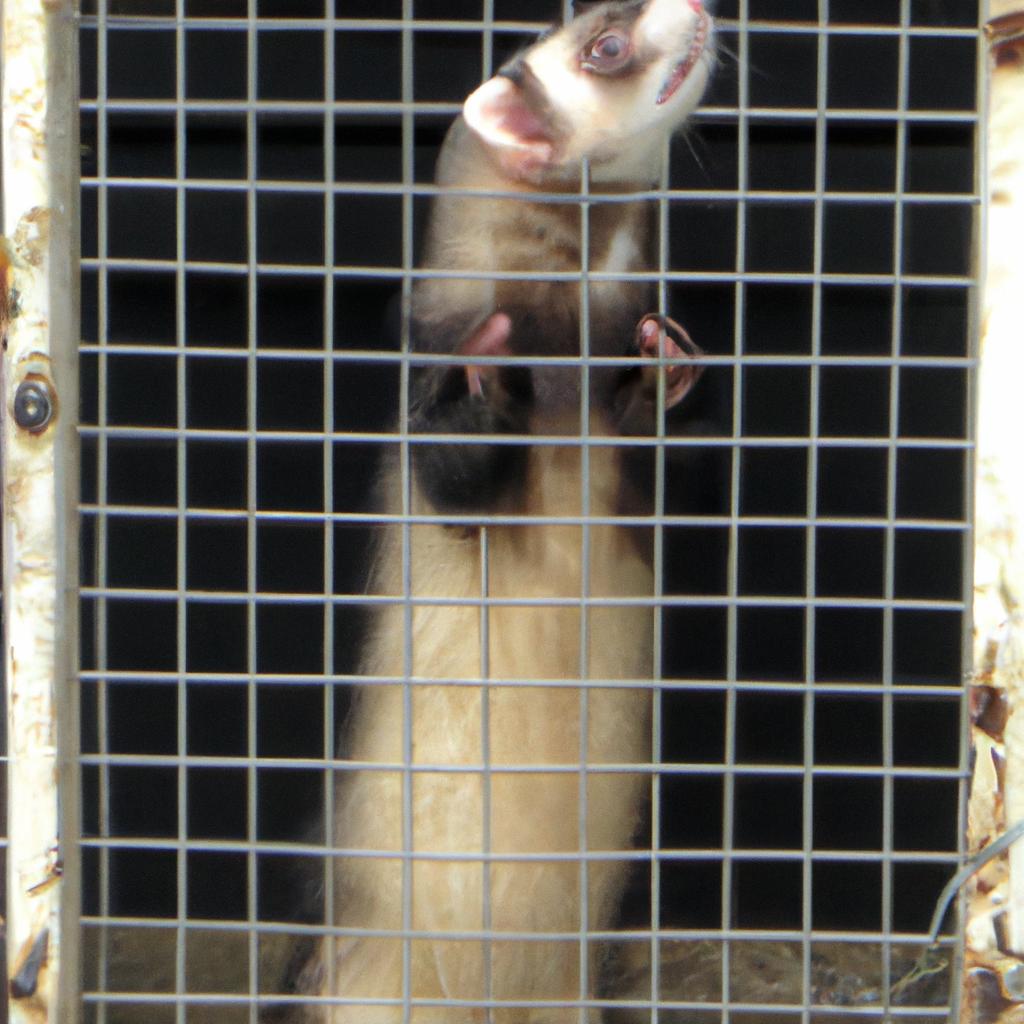Ferrets are adorable and playful pets that require a specific diet to maintain their health. As a ferret owner, you may have wondered if your furry friend can eat rabbits. In this article, we will explore the ins and outs of ferrets’ diets, including whether they can consume rabbits.
Understanding Ferrets’ Diet

Ferrets are obligate carnivores, meaning they require a diet that consists mainly of meat. In the wild, ferrets hunt small animals such as rodents, birds, and rabbits. In domestication, ferrets require a high protein diet to maintain their health.
What do ferrets eat?
Ferrets need a diet that is high in protein and fat and low in carbohydrates. The ideal diet for ferrets consists of raw or cooked meat, such as chicken, turkey, lamb, or beef. Commercial ferret food is also available but should be chosen carefully to ensure it meets your ferret’s nutritional needs.
Why do ferrets need a high protein diet?
Ferrets have a short digestive tract, which makes it difficult for them to break down carbohydrates. They require a diet that is high in protein and fat to help them maintain their energy levels and muscle mass.
Can ferrets eat vegetables?
While ferrets do not require vegetables in their diet, they can eat them in small amounts as a treat. However, it is important to avoid feeding them vegetables that are high in sugar or carbohydrates, such as corn or peas.
In conclusion, ferrets require a high protein diet that consists mainly of meat. While they can eat vegetables in small amounts, they do not require them in their diet. Understanding their dietary needs is crucial to maintaining your ferret’s health and happiness.
Can Ferrets Eat Rabbits?

Rabbits are a common prey for ferrets in the wild, but is it safe for domesticated ferrets to consume them? Let’s take a closer look at the risks and benefits of feeding rabbits to ferrets.
Is it safe for ferrets to eat rabbits?
Feeding rabbits to ferrets is generally safe, as long as the rabbit is fresh and free of any diseases or parasites. However, it is important to note that rabbits are not nutritionally balanced for ferrets and should not make up their entire diet.
What are the risks of feeding rabbits to ferrets?
One of the main risks of feeding rabbits to ferrets is the potential for choking on the bones. It is important to remove all bones from the rabbit before feeding it to your ferret. Additionally, rabbits can be high in fat and cholesterol, which can lead to health issues if fed in excess.
Are there any benefits of feeding rabbits to ferrets?
Feeding rabbits to ferrets can provide them with a source of protein and essential nutrients. However, it is important to ensure that rabbits are not the sole source of food for your ferret and that their diet is balanced with other meats and supplements.
In conclusion, while it is generally safe for ferrets to consume rabbits, there are risks involved, such as choking on bones and consuming excess fat and cholesterol. Feeding rabbits to ferrets should be done in moderation and as part of a balanced diet to ensure their overall health and wellbeing.
Alternatives to Feeding Rabbits

If you’re not comfortable feeding your ferret rabbits or want to mix up their diet, there are plenty of alternative options available.
What other meats can ferrets eat?
Ferrets can consume a variety of meats, including chicken, turkey, lamb, and beef. It’s important to ensure that the meat is raw or cooked and does not contain any seasonings or additives that could be harmful to your ferret’s health.
Can ferrets eat commercial ferret food?
Commercial ferret food can be a convenient and safe option for your furry friend. However, it’s important to choose a high-quality brand that meets your ferret’s nutritional needs. Look for a food that is high in protein and fat and low in carbohydrates.
What are some homemade ferret food recipes?
If you prefer to make your ferret’s food at home, there are plenty of recipes available online. However, it’s important to ensure that the recipe you choose meets your ferret’s nutritional needs. Homemade ferret food should consist mainly of meat and should not contain any harmful additives or seasonings.
In conclusion, there are plenty of alternative options available if you’re not comfortable feeding your ferret rabbits. Whether you choose to feed your ferret commercial food or make their food at home, it’s important to ensure that it meets their nutritional needs and does not contain any harmful additives or seasonings.
Feeding Ferrets a Balanced Diet
Feeding your ferret a balanced diet is essential for their health and longevity. Here are some tips to ensure that your ferret is getting the right amount of nutrients:
How much should you feed your ferret?
Ferrets should be fed small meals throughout the day, as they have a high metabolism and need to eat frequently. The amount of food your ferret requires will depend on their age, weight, and activity level. As a general rule, adult ferrets should eat approximately 5-7% of their body weight in food per day.
What are the signs of an unbalanced diet?
Feeding your ferret an unbalanced diet can lead to health problems such as obesity, dental disease, and digestive issues. Signs of an unbalanced diet include weight gain or loss, bad breath, loose stools, and dental problems.
What supplements should you give your ferret?
Ferrets require specific supplements to maintain their health. They need a source of taurine, which is essential for their heart and eye health. Ferret-specific multivitamins are also available and can help ensure that your ferret is getting all the nutrients they need.
In conclusion, feeding your ferret a balanced diet is crucial for their health and happiness. Be sure to provide them with small meals throughout the day, monitor their weight and health, and provide them with the necessary supplements to keep them healthy.
Ferret Health Concerns
Ferrets are prone to several health issues that can be caused by their diet, environment, or genetics. As a responsible ferret owner, it is important to be aware of these issues and take necessary precautions to keep your pet healthy.
What are some health issues that ferrets can face?
Ferrets can suffer from a variety of health issues, including adrenal disease, insulinoma, and gastrointestinal blockages. Adrenal disease is caused by the overproduction of sex hormones, leading to hair loss, itching, and weight loss. Insulinoma is a tumor that affects the pancreas, leading to low blood sugar levels and seizures. Gastrointestinal blockages can occur when ferrets ingest inappropriate objects, leading to vomiting, diarrhea, and lethargy.
How can their diet affect their health?
Ferrets require a balanced diet to maintain their health. An unbalanced diet can lead to several health issues, including obesity, dental problems, and gastrointestinal blockages. Feeding your ferret a diet that is high in carbohydrates or low in protein can also lead to insulinoma.
What are some signs of a sick ferret?
It is important to monitor your ferret’s behavior and health regularly to catch any issues early on. Signs of a sick ferret may include lethargy, lack of appetite, vomiting, diarrhea, hair loss, or itching. If you notice any of these signs, it is important to seek veterinary care immediately.
In conclusion, ferrets can face several health issues that can be caused by their diet, environment, or genetics. By understanding their health concerns and monitoring their behavior regularly, you can take necessary precautions to keep your pet healthy and happy.
Conclusion
In summary, ferrets are obligate carnivores that require a diet that is high in protein and fat. While they can technically eat rabbits, it is not recommended due to the risks involved. Providing your ferret with a balanced diet that meets their nutritional needs is crucial to keeping them healthy and happy.
In this article, we have explored the ins and outs of ferrets’ diets, including what they eat, why they need a high protein diet, and whether they can eat vegetables. We have also discussed the risks and benefits of feeding rabbits to ferrets and provided alternatives to consider.
As a responsible ferret owner, it’s important to understand your pet’s dietary needs and provide them with a balanced diet. If you have any concerns about your ferret’s health or diet, consult with a veterinarian who specializes in ferrets.
At Ferrets FAQs, Facts, we are committed to providing you with accurate and helpful information about ferrets and their care. We hope that this article has answered your questions about whether ferrets can eat rabbits and provided insight into their dietary needs.
